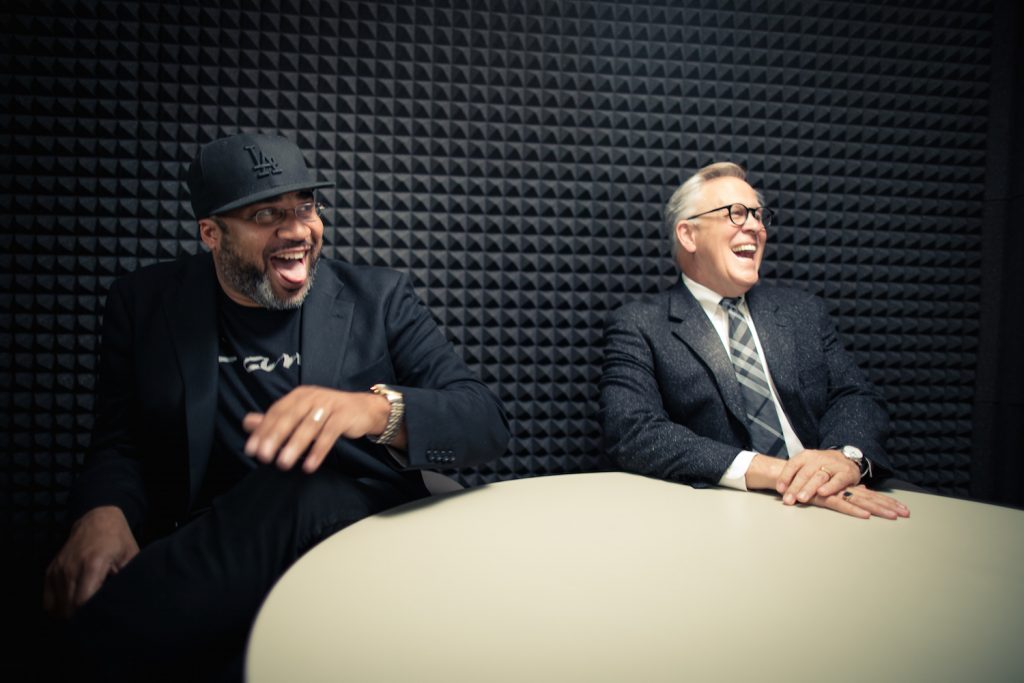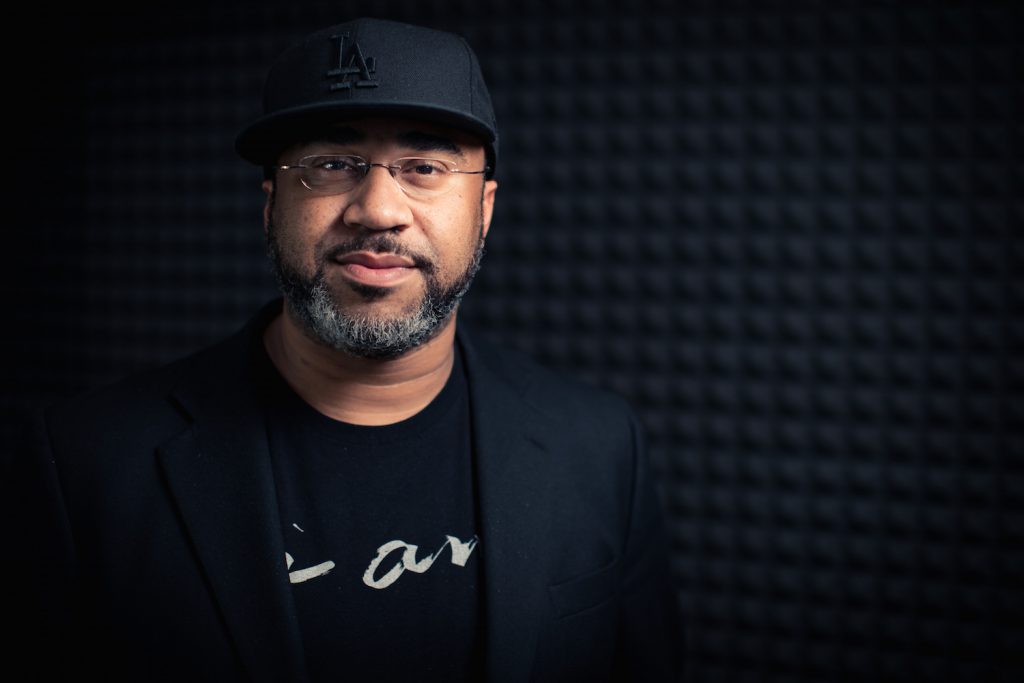 Albert Tate had a secret. He was 17 years old and it was the summer before his senior year—except it wouldn’t actually be his senior year. Albert had flunked out of school, but his parents had no idea because he brought home forged report cards with C-pluses and B-minuses: grades so realistic, why would anyone suspect? He had stopped doing his work, started going to parties, was smoking weed with his friends. When his mother asked, out of the blue, to review his last report card—a mother’s intuition, perhaps—Albert was ready to confess. “By that time I was pretty tired,” he says. “I didn’t realize how heavy the burden was till I got it off me.” He told his parents everything. “It ended with hugging, it ended with real consequences,” he says. And when he went to bed that night, “I felt freer than I ever had.”
Albert Tate had a secret. He was 17 years old and it was the summer before his senior year—except it wouldn’t actually be his senior year. Albert had flunked out of school, but his parents had no idea because he brought home forged report cards with C-pluses and B-minuses: grades so realistic, why would anyone suspect? He had stopped doing his work, started going to parties, was smoking weed with his friends. When his mother asked, out of the blue, to review his last report card—a mother’s intuition, perhaps—Albert was ready to confess. “By that time I was pretty tired,” he says. “I didn’t realize how heavy the burden was till I got it off me.” He told his parents everything. “It ended with hugging, it ended with real consequences,” he says. And when he went to bed that night, “I felt freer than I ever had.”
But the real secret wasn’t that Albert was failing high school. Even when he tried in his studies, he couldn’t always keep up. “I felt like there were two options,” he says, “I was either lazy or dumb, and I’d rather take lazy than dumb.” The fear Albert had hid for so long? That he might be stupid. “The really good secrets are the ones you can’t tell because if you tell them, they will out you,” he says. “I feared what would happen if people knew the truth about me.”
Telling his parents that summer night in Mississippi that he’d failed was the first step in a long journey of learning to live in truth. “It’s almost a daily fight because we have a natural bent to hide,” Albert says, now 40 and the founding pastor of Fellowship Monrovia, a multiethnic megachurch just outside of Pasadena. He was 21, a high school dropout enrolled in a carpentry trade program at the local junior college, when he felt called to start preaching. “My spiritual life was growing,” he recalls. “God was moving; I was becoming a mature believer in Christ.”
Then, “the same thing that happened before recreated itself,” he says. “I was scared to death about taking my GED.” He’d put it off for years, working through the trade program, singing in the choir, helping out at church, excelling in his gifts for music and communication. “That’s my wheelhouse and that’s where I come alive—but that’s also where I don’t have to worry about feeling dumb.”
The insecurity sat quietly in Albert’s heart: he may be a great singer, he may be popular, he may be able to preach the house down, but smart? He eventually mustered the courage to sign up to take the GED. That morning, he made his way down a long corridor to the room set aside for the test. “A faith walk,” he called it. His day of victory.
Opening the classroom door, the first words he hears: “Albert Tate! What are you doing here?” A woman from church was proctoring the test that day. “I’ve been seeing you at church; I love what the Lord’s been doin’ in your life.” A pause. “Now, what are you doin’ here? I know you ain’t come to take your GED!”
“No, no,” stammered Albert, backing toward the door. “I was just looking for somebody.” He bolted from the room—so much for a day of victory. “Truth telling is hard to practice,” he says now. “And shame had found its way of creeping back in my life.”
Another morning, another faith walk down that corridor. Opening the door, Albert found himself surrounded by inmates from a nearby correctional facility. A bus full of them had just arrived, ready to take their GED. After one look at the orange shirts and striped pants, Albert bolted for the second time, embarrassed to be counted among them.
But he remembered the relief he had felt when, years ago, he confessed to his parents—and decided to meet with a school counselor, a fellow believer with whom he’d built a friendship. Tears filled his eyes as he sat down in her office and told her he’d been living a lie. Here he was, almost done with his junior college trade program, with no high school diploma and no GED. He was too scared to take the test, fearing what people would think of him if they knew he still hadn’t passed it, or worse, what they would think if he failed.
“I’d confessed my struggle to God many times,” says Albert, “but the deliverance came when I sat down in that counselor’s office and told her what was really going on with me.” Her words were a healing balm to restore his soul. “Don’t you worry, we’re going to get you through this,” she said. They made a plan: Albert could take his test in her office. No audience necessary. Just one woman, believing he could do it. A few days later, he sat down across from her and took the test. “And she just covered me.” Albert couldn’t believe how easy it was, after so many years of pushing back out of fear, to finally face that fear with a friend by his side.
“That’s when I realized that when you tell the truth of where you really are, there’s no boogey man on the other side—there’s actually grace and healing,” he says.
By the time Albert enrolled at Fuller, he thought he’d moved past that fear of not cutting it. He had a college degree and grades good enough to earn acceptance at a well-known seminary. Yet he still struggled with anxiety in the classroom. “It’s almost like it was traumatic,” he recalls. A paper due would bring up the same feelings of angst he had as a teenager who couldn’t figure out his algebra homework.
Some of his classes, though, didn’t feel like school at all. Classes like Theology and Hip Hop with Ralph Watkins or
Christian Ethics with Erin Dufault-Hunter seemed to transcend the transactional nature of a classroom. “Instead of, here’s a lecture, here’s a paper, here’s a grade,” says Albert, “it was: Here’s a story. Here’s the world. Here’s how the world engages this story. Here’s how this story changes the world. How has this story changed you, and how do you now exist in the world?”
“And you leave class like, woah!” He beams, remembering the thrill of engaging his mind and his classmates. “It became less about transaction and more about, how do I commit myself to being a lifelong learner?”
Every class wasn’t like that, though, and soon Albert was pulled back out of the academic world and into one where he naturally excelled: ministry. After a fruitful stint at Lake Avenue Church, growing under the pastoral leadership and leaning into his own calling, Albert went on to plant Fellowship Monrovia. Now the pastor of a fast-growing church, his seminary career moved to the back burner. Yet years later, he wondered: could he have finished at Fuller if he wanted to? He was a pastor without a seminary degree. What did that say about him? “There it was again,” he says, “this narrative that keeps playing in my life—that the arts, the creative stuff, the spiritual things are where I’m strong, but I’m not good at the hard, rigorous stuff.”
Confession had released freedom for him before, and Albert decided to try and see if truth would meet his truth once again and free him from his lingering shame. He invited Mark Labberton to his office and shared his academic story that was still unfinished. He wondered out loud if he needed a seminary degree to show people that he’s not the guy who dropped out; he’s not lazy or stupid.
Dr. Labberton looked at him steadily. “Albert,” he said, “you are a scholar. You like to learn. You don’t get where you are without studying and working hard. This isn’t just creativity and arts—you’re a student. I’ve heard you preach, and Albert, you’re smart.”
“Maybe,” Dr. Labberton mused, “one of the ways you could learn is for it not to be transactional?” He had an idea. What if he connected Albert with some of his friends who were scholars and professors, and they could sit down and discuss topics like theology, church history, the Old Testament prophets, in an informal setting? No grades or papers or tests, just talking. “With the resources around you and your community, we can find leaders to commit to pouring into you so you can be a lifelong learner.”
Tears welled up in Albert’s eyes. Once again, his truth telling had been met with healing words and a friend willing to walk alongside him.
. . . . . . . . . . . .
A few months later, Albert Tate walked onto Fuller’s campus and headed to the second floor of the Payton building, where he made his way down a long hallway. Another faith walk. This time he opened the door and Professor of Old Testament John Goldingay greeted him, welcoming him into his office. Albert took a seat.
“Well, where do we start?” he asked.
“How about Genesis?” Both men laughed.
They talked, and Dr. Goldingay gave Albert one of his books to read with some questions to consider. “Just call me when you’re ready,” he said. Albert walked out the door, down the stairs, and onto the sidewalk winding through Fuller’s craftsman-style houses. Standing in the shade of a tree, he looked down at the book in his hands, then up and around him at the familiar campus. Tears filled his eyes. “It’s good to be back,” he thought.

+ Listen to Albert Tate reflect on pastoral authenticity with Mark Labberton on the Conversing podcast.
The post Truth Is a Hard Study appeared first on Fuller Studio.